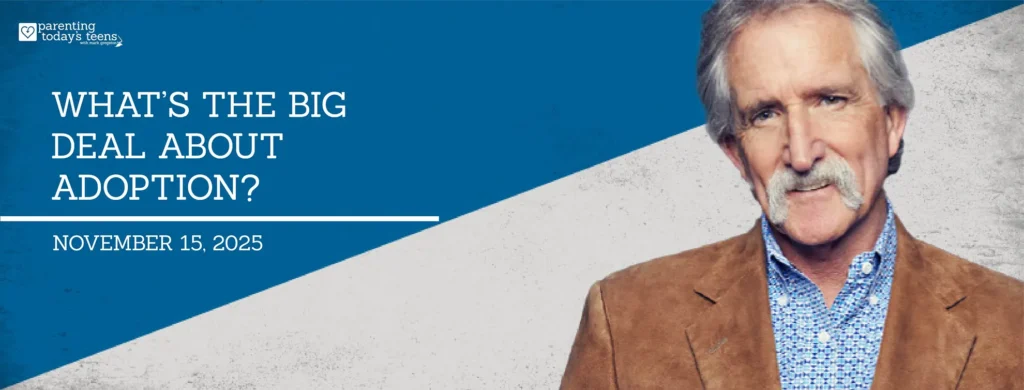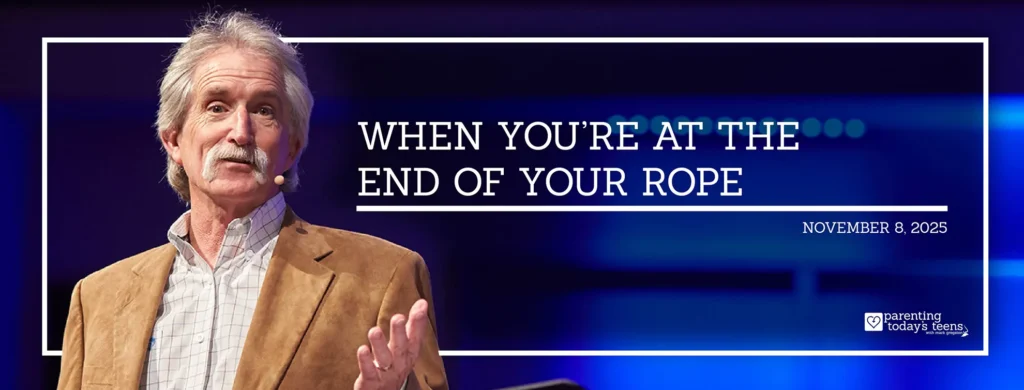The older I get, the more convinced I am that what our teens need most from us isn’t our opinions — it’s our perspective. Our teens are absolutely bombarded with opinions. They hear them at school, on social media, from celebrities, influencers, and even strangers online who don’t know or care about them. Everyone seems to have something to say about everything. But your perspective? That’s different.
Perspective comes from experience. It’s shaped by the storms you’ve weathered, the challenges you’ve faced, and the lessons you’ve learned the hard way. It’s the wisdom that comes from walking through seasons of failure, success, and growth — and coming out stronger. And when shared humbly and thoughtfully, that perspective can become a guiding light for your teen in a culture full of noise.
Over the years, I’ve discovered that teens listen best to people who provide a safe harbor — a place where they can share without fear, be heard without judgment, and receive wisdom that’s been earned through life experience. So, let’s talk about what makes perspective so powerful and how you can share it in ways your teen will actually hear.
What Makes Perspective So Powerful?
At its core, perspective is the ability to understand how a situation looks and feels from another person’s point of view. It’s empathy mixed with insight. And that’s exactly what makes perspective so much more valuable than opinion. Opinions are often quick reactions or snap judgments that can divide and shut down conversations. Perspective, on the other hand, is thoughtful reflection. It connects, encourages, and inspires hope. Opinions draw lines; perspective builds bridges.
When we share opinions, we tend to focus on a single issue in the moment. But when we share perspective, we draw from a series of life experiences that reveal a much bigger picture. An opinion might sound like, “That’s a bad idea.” But perspective says, “I’ve made a similar choice before and here’s what I learned from it.”
Perspective helps your teen see life beyond the moment. It says, “I understand where you are, but I also know where this road can lead.” And that kind of understanding can change everything for a teen who feels stuck, confused, or unsure about what to do next.
Why Your Teen Needs Your Perspective
Today’s teens are growing up in a world that changes faster than ever before. They’re constantly bombarded with new trends, new problems, and new pressures. And while they don’t need another person telling them what to think, they desperately need someone to help them learn how to think. That’s what perspective does — it teaches wisdom without judgment.
When your teen comes to you with a problem, their deepest need usually isn’t for you to fix it. In fact, jumping in too quickly can make them feel like a project instead of a person. What they really need is your presence and your experience. They need your calm assurance that life won’t always feel this overwhelming, and that the pain or confusion they’re facing right now won’t last forever.
Perspective allows you to guide without controlling. It reminds your teen that you’ve been through hard seasons too and that God brought you through them. Sharing that truth helps your teen develop their own sense of confidence, responsibility, and resilience.
It’s also important to remember that teens are naturally egocentric. They see the world mostly through their own lens, and that’s developmentally normal. Your perspective helps them lift their eyes and see beyond their immediate circumstances. It shows them how to step back, consider another point of view, and understand the bigger picture.
Most importantly, sharing your perspective doesn’t force them to take sides. It invites them to think. It opens space for reflection instead of reaction. And that’s exactly what your teen needs to grow into a mature, thoughtful adult.
The Art of Sharing Your Perspective
Knowing that your perspective matters is one thing. Learning how to share it effectively is another. Start by pausing. When your teen comes to you with a question or situation, resist the urge to jump straight to an answer. Take a breath. Ask yourself what’s really being said beneath the surface. Teens often bring up one issue when they’re really asking for help with something deeper: understanding, connection, or belonging.
Then, consider what kind of response would be most helpful for their growth. The goal isn’t to lecture or to make them see things exactly as you do. The goal is to invite them into a conversation.
When it’s time to share, draw from your own experiences. Be honest and vulnerable. You can start with phrases like:
- “I’ve been in that situation before, and here’s what I learned.”
- “I can understand why you feel that way. When I was your age, I felt something similar.”
- “I used to see it differently, but experience taught me a few things.”
By responding this way, you’re honoring your teen’s perspective while adding your own insight. You’re not preaching — you’re relating. You’re saying, “I’ve been there,” which invites trust and openness instead of defensiveness.
This approach creates a bridge between generations. It gives your teen the space to process your wisdom at their own pace while feeling respected and heard.
Fostering Ongoing Connection
Perspective isn’t shared in a single conversation, it’s built through ongoing dialogue. Opinions often end discussions, but perspective opens them up.
When you share perspective, you’re planting seeds. Those seeds might not take root right away, but as your teen grows, they’ll remember your words in the moments they need them most.
Keep those conversations going. Circle back to topics you’ve discussed before with comments like:
- “I’ve been thinking about what we talked about last week…”
- “I remembered something that might connect to what you said the other day.”
That follow-up shows that you’re invested — not just in the issue, but in your relationship. It tells your teen, “You matter to me. I’m still thinking about what’s on your heart.” And that’s what builds trust—the kind of trust that allows your teen to come back to you again and again, not because they have to, but because they want to.
The Bottom Line
Your teen hears opinions everywhere — millions of them, every single day. But wisdom? That’s rare. And perspective, that’s priceless. That’s why your voice matters so much. Share what’s happening today, but also share how your history and story reveal a bigger picture of God’s faithfulness and truth.
If your teen only looks at what’s happening this week, they might feel discouraged or fearful. But when you share how things have unfolded over decades — how God has provided, healed, and guided — you give them hope. You give them something steady to stand on when the world feels shaky. Proverbs 15:7 says, “The lips of the wise give good advice, but the heart of a fool has none to give.”
In other words, the wise share perspective, the fool just gives opinions. Your teens don’t need your arguments or your quick takes. They need your wisdom: earned, lived, and shared with love. When you offer that, you’re giving them something they can’t find anywhere else.






